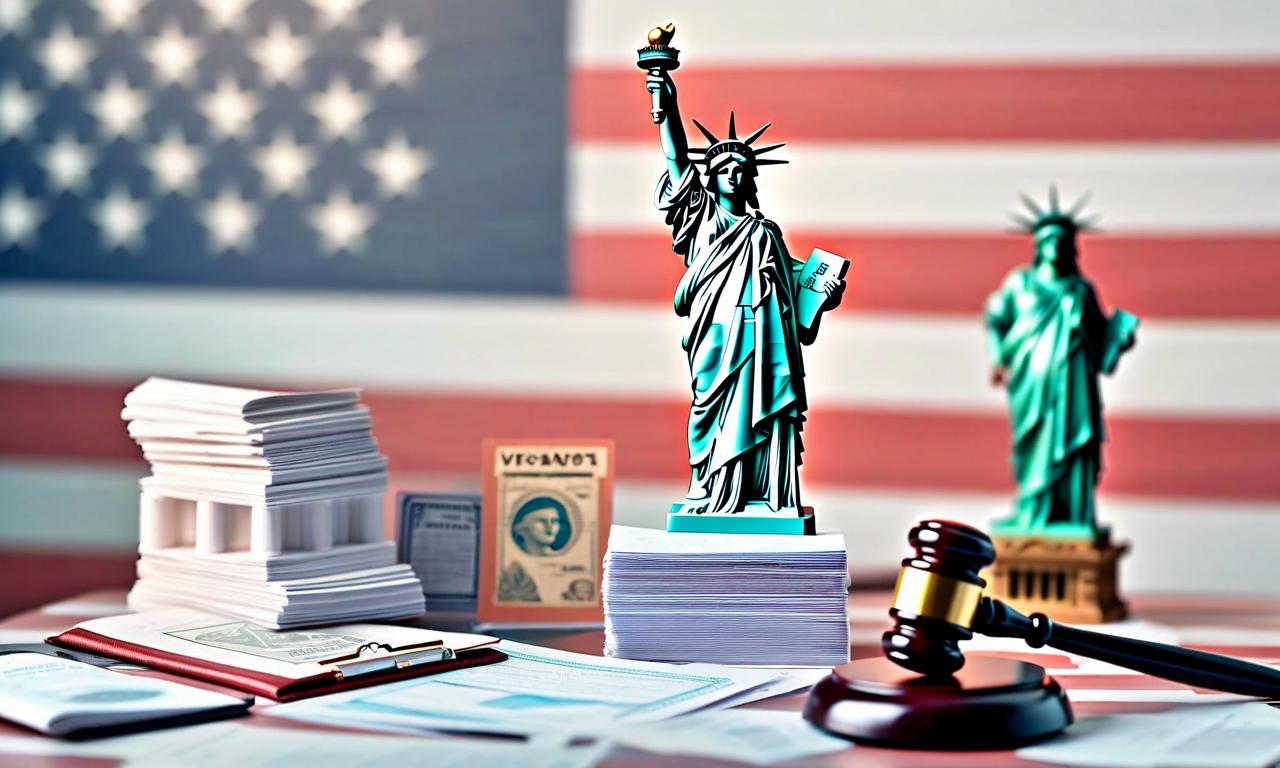US Proposes Significant Changes to H-1B Visa Program, Impacting Indian IT Professionals
The US Department of Homeland Security has proposed significant modifications to the H-1B visa program. Key changes include revising cap exemptions, increasing scrutiny for employers with past violations, enhancing oversight of third-party placements, and imposing a $100,000 mandatory fee on new applications. The administration is also considering replacing the lottery system with a wage-based selection process. These changes could significantly impact Indian students and professionals, especially those in IT services and consulting sectors. New rules could be issued as early as December, potentially reshaping the landscape for H-1B visa applicants.

*this image is generated using AI for illustrative purposes only.
The United States Department of Homeland Security has proposed substantial modifications to the H-1B visa program, potentially affecting thousands of Indian students and professionals seeking employment in the US. These changes aim to enhance program integrity and protect American workers' wages and working conditions.
Key Proposed Changes
Revision of Cap Exemptions: The proposal includes changes to eligibility criteria for cap exemptions, which could impact non-profit research organizations, universities, and healthcare institutions that currently benefit from these exemptions.
Increased Scrutiny: Employers who have previously violated program requirements will face heightened scrutiny.
Enhanced Oversight: The proposal includes measures to improve oversight of third-party placements.
New Application Fee: A $100,000 mandatory fee has been imposed on new H-1B visa applications, primarily affecting Indian workers in IT services and consulting sectors.
Potential Wage-Based Selection: The administration is considering replacing the traditional H-1B lottery system with a wage-based selection process.
Timeline and Impact
The Department of Homeland Security suggests that new rules could be issued as early as December. These changes have the potential to significantly impact the landscape for H-1B visa applicants, particularly those from India working in the IT and consulting industries.
Implications for Indian Professionals
The proposed changes could have far-reaching consequences for Indian students and professionals aspiring to work in the United States. The IT services and consulting sectors, which have traditionally relied heavily on the H-1B program, may face particular challenges under the new rules.
| Aspect | Current System | Proposed Changes |
|---|---|---|
| Application Process | Lottery-based selection | Potential wage-based selection |
| Application Fee | Standard fees | Additional $100,000 mandatory fee |
| Eligibility | Broader exemptions | Revised eligibility for cap exemptions |
| Employer Requirements | Standard oversight | Increased scrutiny for violators |
| Third-Party Placements | Less regulated | Enhanced oversight |
These proposed modifications to the H-1B visa program represent a significant shift in U.S. immigration policy for skilled workers. As the situation develops, potential applicants and current visa holders should stay informed about these changes and their potential impacts on employment opportunities in the United States.

























